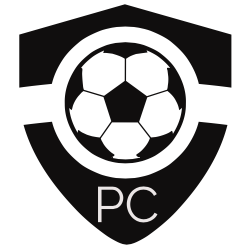Defining "Success"
“To achieve success, you first need to define it for yourself.” —Jack Hanson
How to help your child succeed at football is a tagline I used for this book, but the definition of success is very personal. It’s a good exercise to spend some time thinking about this to help you identify what type of parent you are. There are no rights or wrongs here; simply think about what that statement means to you. You might have picked up this book because success to you means the glory of your child being a professional; you might want your child to be the best player they can be, to be better than you were as a player, to give them the best chance possible as you’re a good parent, to help your child simply enjoy what they’re doing, to give your child an edge over all the other children, and so on. Or you might simply be curious. There’s no harm in any of the reasons as they’re personal to you, and you shouldn’t be patronised by being told what you should or shouldn’t think. However, there might be harm in your actions in your pursuit of that “success”. Damage might be done that hinders the chances of attaining the success that you’ve identified and also damage to your child’s enjoyment of the game.
Your child’s reasons for playing are more than likely very different from yours, and if you want to get the most out of your journey together, then it is imperative that these are aligned and do not conflict. It is their journey and one that you are simply here to facilitate, guide and support, but we’ll get to that later in the book.
In terms of this book, success is deemed as fulfilling whatever innate potential a child was born with and being happy whilst also developing life skills and resilience along the way. Successes like getting scouted at a pro club or one day being a professional are outcomes beyond anyone’s control. In contrast, the process of fulfilling potential can be controlled to a certain extent by creating the right environment for personal development. I have been a professional scout, and coach, for many years, and it is impossible to predict who will fulfil their potential or
who might go on to become a professional, but I can, with some degree of accuracy, tell you which children most certainly won’t. This is based mainly on the decisions and actions of their parents. This book hopes to highlight some of those areas and give the reader something to think about and highlight alternative options to change behaviours. This is not a blueprint for success. Such a thing cannot exist as there are too many nuances and variables; all children are unique.
High performance is a term that has become much more popular and one that I have used in the book. When I talk about high performance, I don’t mean simply being an elite player. Being “elite” is subjective and for other people to determine based on their opinion. What I mean by high performance is a child doing all the right things to develop and is in the “zone” to maximise learning, growth and performance.
Whatever the definition of success, it certainly won’t be achieved in a straight line. There will be twists and turns, peaks and troughs, and will often go backwards for periods. High performers often talk about the messy middle part between getting started and achieving something. This book is all about helping you navigate safely through the messy middle.
I believe that a champion is someone who fulfils their potential. There are many champions, but not all of them win titles or are famous. All champions, however well known, are made when nobody else is watching. My advice to players as they get older is to be their own champions. You can be a high performer at anything. High performance is personal and can be absolutely anything. You can be a high-performing father, a high-performing mother, or high-performing anything—it simply means maximising your potential, being consistent, going all in, taking responsibility and seeking to continually improve in any area you desire.
“Define success on your own terms, achieve it by your own rules, and build a life you’re proud to live.” —Anne Sweeney
This blog was taken from my book, Did You Win, Did You Score…? How to Help Your Child Succeed at Football and Life.
Available to purchase on Amazon:
Listen to the audio version of this blog (and others) along with my thoughts on the topic here:
